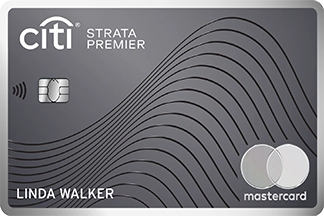- myFICO® Forums
- FICO Scoring and Other Credit Topics
- Understanding FICO® Scoring
- Any data points on installment loan <70%
- Subscribe to RSS Feed
- Mark Topic as New
- Mark Topic as Read
- Float this Topic for Current User
- Bookmark
- Subscribe
- Mute
- Printer Friendly Page
Any data points on installment loan <70%
Is your credit card giving you the perks you want?
Browse credit cards from a variety of issuers to see if there's a better card for you.
- Mark as New
- Bookmark
- Subscribe
- Mute
- Subscribe to RSS Feed
- Permalink
- Report Inappropriate Content
Any data points on installment loan <70%
Does anyone have any data points they can share when their installment loan dropped below 70% of the original balance? I've heard that getting under 70% can provide a "bump" to ones scores. I understand that score increases from this could vary which is why I'm looking for multiple situational answers. I supposed answers could vary as well when considering if the individual only has 1 installment loan or several.
- Mark as New
- Bookmark
- Subscribe
- Mute
- Subscribe to RSS Feed
- Permalink
- Report Inappropriate Content
Re: Any data points on installment loan <70%






| Total CL: $321.7k | UTL: 2% | AAoA: 7.0yrs | Baddies: 0 | Other: Lease, Loan, *No Mortgage, All Inq's from Jun '20 Car Shopping |
BoA-55k | NFCU-45k | AMEX-42k | DISC-40.6k | PENFED-38.4k | LOWES-35k | ALLIANT-25k | CITI-15.7k | BARCLAYS-15k | CHASE-10k










- Mark as New
- Bookmark
- Subscribe
- Mute
- Subscribe to RSS Feed
- Permalink
- Report Inappropriate Content
Re: Any data points on installment loan <70%
I've read in several threads on here that 70% is one of the threshold points on installment loans so since multiple people have stated this I'm fairly confident that it's true. That said, I'd like to hear from anyone that has crossed over this point on an installment loan as to whether their score increase was even noticable, slight, large, etc.
- Mark as New
- Bookmark
- Subscribe
- Mute
- Subscribe to RSS Feed
- Permalink
- Report Inappropriate Content
Re: Any data points on installment loan <70%
I did one of the $500 installment loans, That is my only loan. I didn't see any score change crossing anything other than 10%. I think the reports of seeing a change at a higher point is from people with mortgages. Maybe there is a time factor that we don't see on the small loans that shows on a longer term loan like a mortgage.
- Mark as New
- Bookmark
- Subscribe
- Mute
- Subscribe to RSS Feed
- Permalink
- Report Inappropriate Content
Re: Any data points on installment loan <70%
@Anonymous wrote:Does anyone have any data points they can share when their installment loan dropped below 70% of the original balance? I've heard that getting under 70% can provide a "bump" to ones scores. I understand that score increases from this could vary which is why I'm looking for multiple situational answers. I supposed answers could vary as well when considering if the individual only has 1 installment loan or several.
I just took out my first auto loan in decades. I have that plus a little share secured loan.
I'm planning to carefully observe, and report back, each time I cross a 10% line in aggregate utilization. Just hoping nothing extraneous happens to mess up my observations.
Off the bat I reduced it to 89% so that will be the first data point.
Unfortunately the auto loan didn't report when I took it out, so I'll probably be missing my starting point. I.e., I've already messed up my little experiment.































Total revolving limits 568220 (504020 reporting) FICO 8: EQ 689 TU 691 EX 682
- Mark as New
- Bookmark
- Subscribe
- Mute
- Subscribe to RSS Feed
- Permalink
- Report Inappropriate Content
Re: Any data points on installment loan <70%
That will be a nice experiment and should provide some useful data.
I just sent in an extra $915 payment toward my car loan today which should be received and applied to my loan well in time for their reporting to the bureaus on the 26th. Once that payment is applied it will take my car loan down to 69% of its original balance. I'm hoping I see something nice there.
I also paid down my total CC utilization from 34% to 5% this month which I imagine will give me a nice boost, but I'm going to pull my scores a couple of days before the 26th which should reflect my new scores with the lowered utilization but without the lowered car loan balance.
I do agree with the poster above that mentioned mortages and certain thresholds. I've heard about 70% and 50% being two of them. I'm at 76% on my mortage right now and should have it down to 70% right around the New Year +/- a month. Looking forward to a possible increase then as well.
Does anyone have confirmation on non-mortgage installment loans (like auto loans) having certain points (percentages of original balance) where score increases are realized?
- Mark as New
- Bookmark
- Subscribe
- Mute
- Subscribe to RSS Feed
- Permalink
- Report Inappropriate Content
Re: Any data points on installment loan <70%
@Anonymous wrote:That will be a nice experiment and should provide some useful data.
I just sent in an extra $915 payment toward my car loan today which should be received and applied to my loan well in time for their reporting to the bureaus on the 26th. Once that payment is applied it will take my car loan down to 69% of its original balance. I'm hoping I see something nice there.
I also paid down my total CC utilization from 34% to 5% this month which I imagine will give me a nice boost, but I'm going to pull my scores a couple of days before the 26th which should reflect my new scores with the lowered utilization but without the lowered car loan balance.
I do agree with the poster above that mentioned mortages and certain thresholds. I've heard about 70% and 50% being two of them. I'm at 76% on my mortage right now and should have it down to 70% right around the New Year +/- a month. Looking forward to a possible increase then as well.
Does anyone have confirmation on non-mortgage installment loans (like auto loans) having certain points (percentages of original balance) where score increases are realized?
It's my understanding that FICO doesn't have separate per-loan utilization for installment loans like it does for credit cards, and looks only at the aggregate utlization percentage for your open installment loans collectively. So if you have a car loan and a mortgage, it won't have separate break points for each, but will just look at them together.































Total revolving limits 568220 (504020 reporting) FICO 8: EQ 689 TU 691 EX 682
- Mark as New
- Bookmark
- Subscribe
- Mute
- Subscribe to RSS Feed
- Permalink
- Report Inappropriate Content
Re: Any data points on installment loan <70%
Interesting. I wonder what those combined percentages would be that trigger different boosts.
When I pulled my FICO scores a few weeks ago from CCT, one of the factors they listed as positively impacting my scores was "significant" portions of my installment loans had been paid down... some wording along those lines. To me, with my mortgage being at 76% and my car loan being at 74% at the time, I was surprised that paying down 24% and 26% respectively was considered "significant" in the eyes of FICO scoring.
- Mark as New
- Bookmark
- Subscribe
- Mute
- Subscribe to RSS Feed
- Permalink
- Report Inappropriate Content
Re: Any data points on installment loan <70%
Installment loans are looked at in aggregate onle (total balance/total loan ratio). They do not have an indivitual element like revolving credit cards.
CAPTOOL shared data back in 9/2015 that showed a step change improvement in score when his aggregate B/L ratio went from a percentage in low 70s to the high 60s. See link below:
Mortgage loans are designated differently and given their own summary category on credit reports. I've never had anything but mortgage loans in my file so I can't speak personally with respect to car loans or other installment loans. Regardless, for a mortgage by itself or in aggregate with other installment loans, you don't need to be below 50% B/L (let alone below 10%) to get a top score.
Fico 8: .......EQ 850 TU 850 EX 850
Fico 4 .....:. EQ 809 TU 823 EX 830 EX Fico 98: 842
Fico 8 BC:. EQ 892 TU 900 EX 900
Fico 8 AU:. EQ 887 TU 897 EX 899
Fico 4 BC:. EQ 826 TU 858, EX Fico 98 BC: 870
Fico 4 AU:. EQ 831 TU 872, EX Fico 98 AU: 861
VS 3.0:...... EQ 835 TU 835 EX 835
CBIS: ........EQ LN Auto 940 EQ LN Home 870 TU Auto 902 TU Home 950
- Mark as New
- Bookmark
- Subscribe
- Mute
- Subscribe to RSS Feed
- Permalink
- Report Inappropriate Content
Re: Any data points on installment loan <70%
Interesting. Looking forward to seeing in a couple of weeks what type of impact it has.